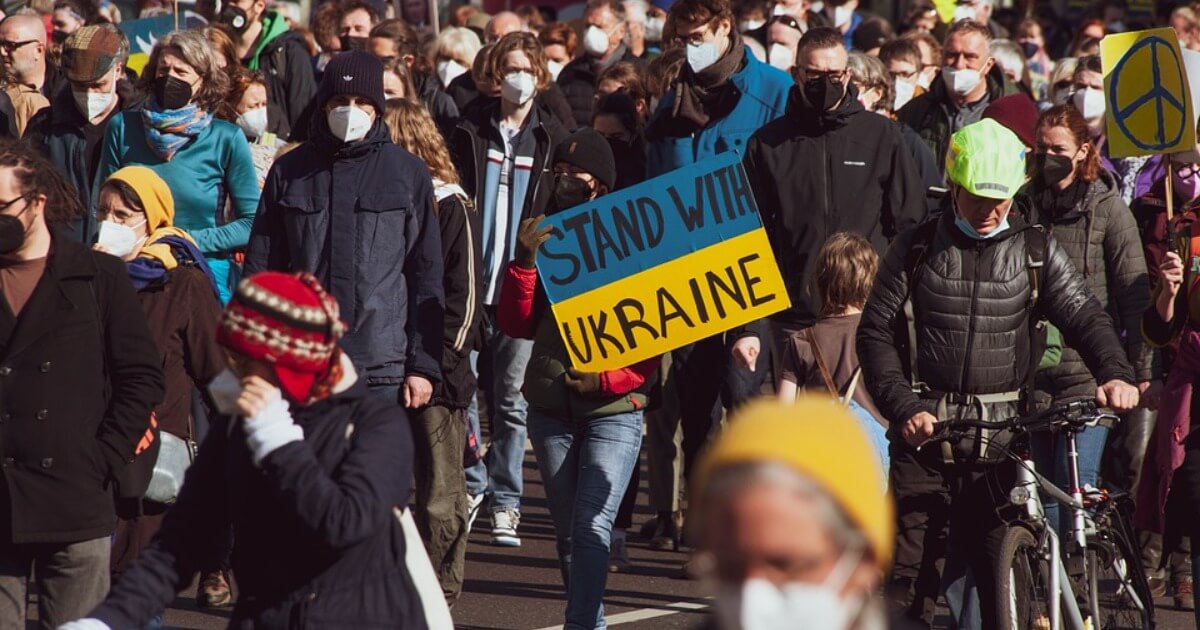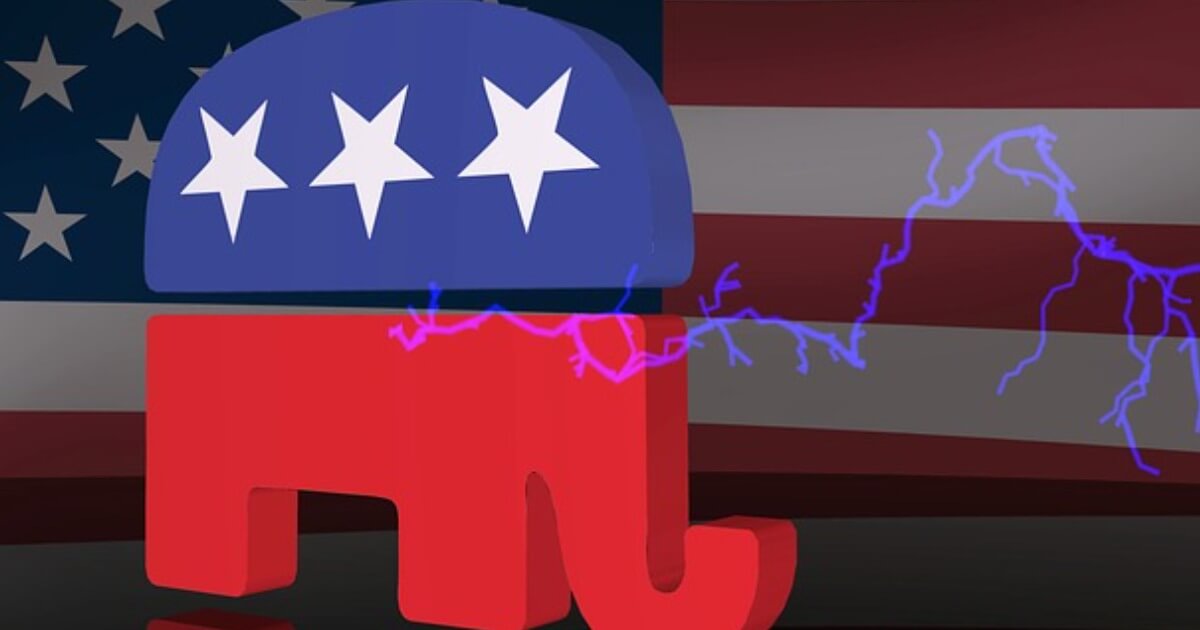The Naftogaz Maneuver: Ukraine’s Twilight as a Western Country?
How the ouster of a reform-oriented energy sector CEO is a microcosm of Ukraine’s battle to become a Western country.
May 16, 2021

Following the ouster of President Viktor Yanukovych in 2014, Ukraine began the slow process of extracting itself from the claws of Russia after 300 years of enforced subservience.
Much more than just a corporate firing
It is against that backdrop that the recent firing of Naftogaz CEO Andriy Kobolyev matters so much.
Could the real purpose of this corporate maneuver have been to end any prospect of Ukraine’s pivot toward the West?
Working hard for modernity and progress
After Ukraine gained its independence, it took a good long while for the required reforms to take shape. The changes that eventually materialized were slow and hard won, but they represented real progress.
This includes the 2014 Association Agreement with the European Union; visa free travel to Schengen countries; the passage of critical legislation to combat corruption and increased transparency; the break-up of Soviet era monopolies and the creation of an Anti-Corruption Authority.
Russia’s eternal backbiting
But as the world also knows, Russia has engaged in endless efforts, including military ones and cyberattacks, at undermining and destabilizing Ukraine.
And, as would be expected, given the changes underway, internal strife inside Ukraine over reforms has been formidable, too.
Bleeding dry Ukraine
It is no surprise that it is in Ukraine’s energy sector where the fiercest battles over reform have been fought. It is there that corruption ran deepest.
Ukrainian oligarchs like Dmytro Firtash and Igor Kolomoysky long drunk from the well of energy sector corruption. Not to be left behind, politicians have also viewed the energy sector as a private piggy bank with which to finance their political ambitions.
Collectively, these kleptocratic forces were bleeding dry Ukraine’s greatest assets.
What to do?
No wonder that cleaning up the energy sector has been paramount for efforts to promote good governance and a path to a solid democracy and a transparently run economy.
Otherwise, any efforts to help Ukraine reform and integrate with Europe cannot succeed. It is thus only logical that Ukraine’s state-owned gas monopoly, Naftogaz, became the key focus.
The largest company in Ukraine, Naftogaz employed 80,000 people in 2015. At the time, it was a loss-making enterprise, stunted by poor management, Soviet-era labor laws, and corruption.
The Kobolyev surprise
When Andriy Kobolyev was chosen to be CEO by the Ukrainian government in 2014, he surprised many.
He cracked down on corruption, fired managers who failed to eliminate opportunities for impropriety, cleaned up the procurement systems, hired actual oil and gas experts to run divisions and subsidiaries and made sure that accurate records were kept.
A lot of hard lifting
Kobolyev broke up Naftogaz, unbundling the gas transmission system to comply with EU antimonopoly laws. He made the company profitable, contributing in recent years as much as 18% of the Ukrainian state budget as the country’s top tax payer.
Naftogaz’s CEO launched lawsuits against Russia’s Gazprom that were deemed unwinnable — and won them, earning billions for Ukraine.
He raised sufficient money abroad to buy and store gas to keep Ukraine warm through winter. He also managed to secure a surprisingly favorable contract with Russia to keep gas transit through Ukraine at least until 2024, at a $15 billion profit to Ukraine.
With these unlikely achievements in hand, Mr. Kobolyev was planning an IPO to take Naftogaz public.
Dangerous business
While cleaning up the Ukrainian energy sector, Kobolyev by necessity made many enemies.
In part, this was because his reforms angered vested interests. And he earned a hefty salary and developed a reputation for constant skirmishes with the Ukrainian government.
He also faced death threats from oligarchs and threats of imprisonment from his own government. Then, there is the hatred of many Ukrainians for raising gas prices (an IMF requirement for macro financial assistance to Ukraine).
Trump’s hatchet job crew weighed in too
Let us not forget the pressure for Kobolyev’s removal by then-U.S. Energy Secretary Rick Perry, as well as Rudy Giuliani, Lev Parnas, Igor Fruman and other shady Trumpistas.
One way or another, they were looking to get rich at the expense of Naftogaz and Ukraine.
Enter Mr. Zelensky
When Volodymyr Zelensky was elected as Ukraine’s new president in 2019, there was hope he would continue reforms. It evaporated quickly.
The first sign of trouble came when Andriy Bohdan was appointed as Zelensky’s first Chief of Staff. He had long served as the Ukrainian oligarch Kolomoysky’s lawyer. (Kolomoysky moved back from exile in Israel to Ukraine on the day after Zelensky’s inauguration.)
Things only worsened with Zelensky’s second Chief of Staff, Andriy Yermak. He has reportedly been identified as a Russian agent by British intelligence service MI-6.
In his actions, Zelensky has proven counter-reform, too. Among the troubling indications have been moves such as the quashing of judicial reform and working to fire the head of the Anti-Corruption Authority.
Ousting the reformer
On April 28, 2021, the dam finally broke. The Ukrainian Cabinet voted to fire Mr. Kobolyev, publicly citing the $685 million 2020 losses at Naftogaz (while reportedly admitting privately that his firing was unrelated).
In order to get this done, the Ukrainian Cabinet rode roughshod over corporate governance — it suspended the Supervisory Board for 48 hours in order to usurp its authority over the Executive Board.
It replaced Kobolyev in the same sitting with acting Energy Minister Yuriy Vitrenko — the same man who had presumably voted minutes before as a Cabinet member to terminate his predecessor.
Never mind that Vitrenko’s appointment appears to be illegal because of conflicts of interest in violation of Ukraine’s Anticorruption Law.
Zelensky on a mission — but whose?
Following upon the firings of other reformers, Zelensky’s sacking of the Naftogaz CEO may prove in retrospect to have been the last finger in the proverbial dike holding back Ukraine’s return to Russia’s sphere of control.
Odds are that, sooner or later, Naftogaz will become defunct, killed by government meddling, plunder, and corruption – or simple mismanagement. This will, of course, mean billions less in revenues flowing into Ukrainian state coffers. The cash cow will be feeble and dying.
Beware of Russia’s scheming
Perhaps the most important — and least talked about — context of the shady Naftogaz corporate boardroom maneuver is Russia’s interests in these developments.
The Russian government is keen to fabricate “proof” that Ukraine is an unreliable gas transit partner. This is a Russian-manufactured falsehood which the Putin crew has been eagerly promoting in recent years.
It’s all about North Stream 2
That concoction is part of the scheme to justify its Nord Stream 2 gas pipeline with Germany. If Ukraine cannot be trusted to keep the gas flowing to western Europe because of its political or economic instability, the argument goes, then Germany needs a more direct supply route.
Thus, destabilizing Naftogaz plays straight into Russian disinformation campaigns. It’s a geopolitical gaslighting scheme, and one the shakeup at Naftogaz supports.
Once Nord Stream 2 construction is finished, likely later this year notwithstanding U.S. sanctions, Ukraine will lose the further billions it now earns from gas transit from Gazprom.
If Russia can send gas straight to Germany — rendering western Europe even more reliant on Russian supply and far less strategically secure — it can stop using, and paying, Ukraine.
The $2 billion annual hole in Ukraine’s budget will be hard to fill, especially when Naftogaz can no longer support 18% of the state budget with its taxes and dividends.
Will history repeat itself?
If and when Naftogaz has no cash left, it will not be able to buy gas for heat during Ukraine’s brutal winters. Come December or January, Kyiv will have to crawl to Moscow to beg for gas to keep the Ukrainian people alive.
This is not conjecture. The exact same situation arose in 2009 when Russia cut off gas transit through Ukraine to cripple the country. Prime Minister Yulia Tymoshenko was forced to beg the Kremlin for fuel.
The result was a severely disadvantageous decade-long gas transit contract with Gazprom that kept Ukraine dependent on Russia for years.
Ukraine and the West
For Western countries keen on supporting Ukraine’s integration with Europe, a repeat of 2009 should be very unwelcome.
Yet, Western powers seem hesitant to engage forcefully. According to media reports on their May 6 meeting in Kyiv, U.S. Secretary of State Antony Blinken pressed Zelensky to respect corporate governance in Ukraine, including at Naftogaz.
However, Mr. Zelensky appears to have heard accommodation. Mere hours after the Blinken-Zelensky meeting, Ukraine’s Prime Minister meddled in Naftogaz corporate governance again, blocking quorum so Naftogaz’s Supervisory Board couldn’t fire new CEO Vitrenko.
Moscow and the rollback
If the Ukrainian government gets away with decapitating Naftogaz, it will have been the most consequential rollback of the greatest reform. It could then turn its anti-corporate governance attention to other state-owned companies.
Whether these companies end up under direct, likely questionable government control, or instead find their ways back into oligarch pockets, the dismantling of western reforms in Ukraine is a victory for Russia.
Conclusion
Anyone concerned about Russian aggression and its irrepressible anti-democratic proclivities, or about Ukraine’s future and European security, should be gravely worried.
We may now be watching the slow death of the Ukrainian people’s dreams of becoming a western oriented country.
Editor’s Note: The contents and opinions expressed in this article are the authors’ own and do not necessarily reflect the position of the U.S. government or its agencies.
Takeaways
Was the real purpose of the recent firing of Naftogaz CEO Andriy Kobolyev to end any prospect of Ukraine’s pivot toward the West?
Was the Naftogaz corporate maneuver designed to return Ukraine to the sphere of Russian control?
Russia engages in endless efforts to undermine and destabilize Ukraine, including via the military and cyberattacks
Destabilizing Naftogaz plays straight into Russian disinformation campaigns.
Ukraine’s energy sector is the focal point of the fiercest battles over reform. The reason is simple: It is where corruption traditionally ran deepest.
When Volodymyr Zelensky was elected as Ukraine’s new president in 2019, there was hope he would continue reforms. It evaporated quickly.

